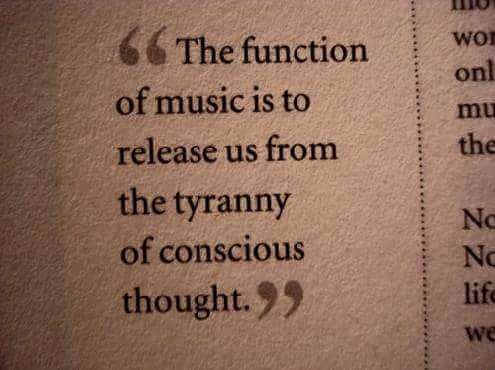#Sir Thomas Beecham
Text
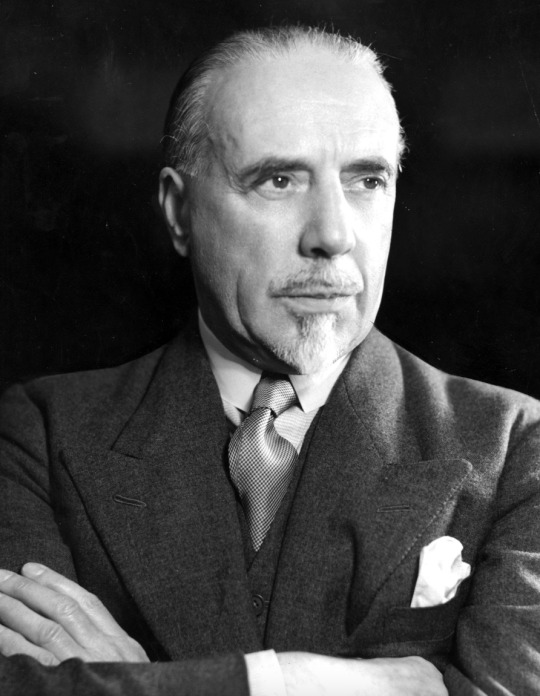
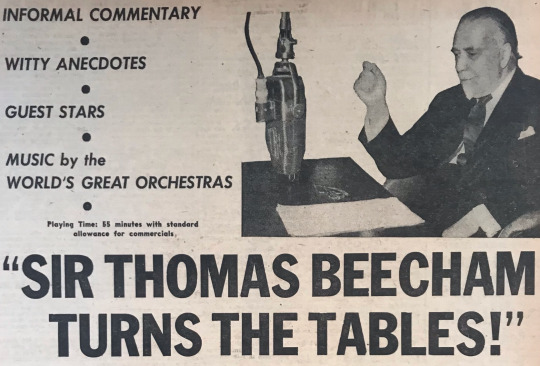
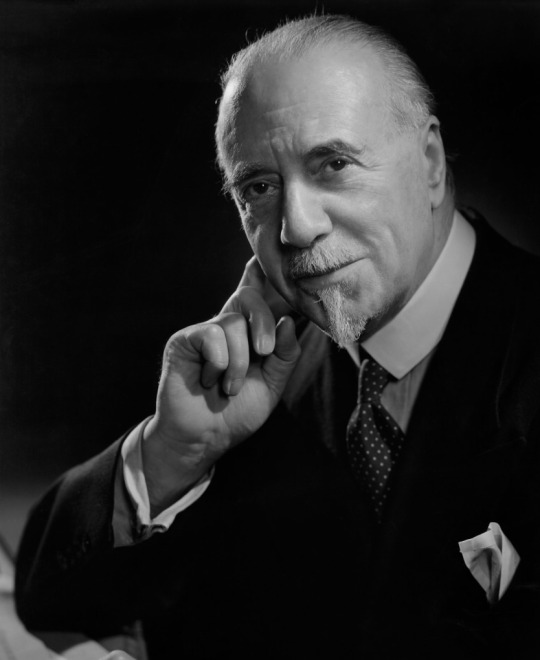
Sir Thomas Beecham: Conductor of the London Philharmonic
3 notes
·
View notes
Text
Interviewer: Have you listened to Stockhausen?
Sir Thomas Beecham: No, but I once trod in some.
#quote#quotes#texts#critics#critic#critique#Stockhausen#Karlheinz Stockhausen#Thomas Beecham#Sir Thomas Beecham
1 note
·
View note
Text
Chapter 129 spoilers
Short chapter this time, but I noticed a couple interesting things I wanted to talk about! Huuuge thank you to @hello-vampire-kitty for doing and sharing the translation for us, please go give her a ko-fi if you can afford it!

First up is this little sequence.
these panels appear while misono is pondering lily's betrayal, mikuni's allegiance with tsubaki, and why mikuni might have burned down the east wing.
the flowers depicted here are chrysanthemums, which in addition to being associated with both the emperor (yellow) and truth (white), also have a festival dedicated to them which takes place during the ninth day of the ninth month, since nine is considered to be a lucky number. Which is also the number for the last sin left, the sin of Vainglory. Considering the association with the emperor, the ruler of japan, the butterfly flitting away can also be taken to symbolize Misono perceiving Lily as abandoning him, the King.
Personally my favorite part of this here is that there are two flowers and that either color could work for the situation at hand, but more than that, white and yellow happen to be colors associated with both our betrayers, along with death (white, Lily's favorite color) and jealousy (yellow, Mikuni's favorite color [more specifically he likes the color daffodil yellow but that's because he's a little priss and i love him so much])
However, they also have a more positive connotation of purity and friendship
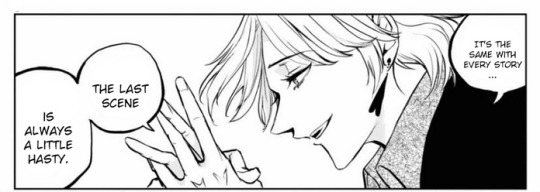
i also want to point out here that Lily is probably referencing the way the ritual seems to have been accelerated, but also Turandot itself, which has had criticisms leveled at it for the abrupt ending as well as the extremely forceful way the protagonist shows his love to Turandot, assaulting the princess with a kiss (which was fairly common for works of the time but didn't fit the mood of the story nor was it incorporated well according to critics). Also relevant to Turandot being used as the name of the spell is that initially the opera was left unfinished, which, well, suffice to say this plays nicely with the fact the space they're in can't be left until the game is also finished.
Anyway take this excerpt from the wiki to finish up because it fucking sent me
"Joseph Kerman states that "Nobody would deny that dramatic potential can be found in this tale. Puccini, however, did not find it; his music does nothing to rationalize the legend or illuminate the characters." Kerman also wrote that while Turandot is more "suave" musically than Puccini's earlier opera, Tosca, "dramatically it is a good deal more depraved." However, Sir Thomas Beecham once remarked that anything that Joseph Kerman said about Puccini "can safely be ignored""
Humans have never changed a single iota.
56 notes
·
View notes
Text
The images of woman as object, not as active agent or creative autonomous subject, ensure that women remain on the outside, that women's voices are not heard. As history describes the doings of men, as fine art is the art created by men, as literature is writing produced by men, and as classical music is that composed by men, so the science, the news, the art, the literature, the music of today is that produced by men. The patriarchs are adamant that this should be so. The conductor, Sir Thomas Beecham, pronounced, “There are no women composers, never have been, and never will be.” John Ruskin confidently declared “No woman can paint.” And Swinburne claimed that, “When it comes to science we find women are simply nowhere. The feminine mind is quite unscientific.” Virginia Woolf's ponderings on the (im)possibility of ‘Shakespeare's sister’ who might have wanted to write, characterize the position of women in the creative sphere. As Tillie Olsen illustrates, in her now classic text, Silences, woman's voice has been absent from the world's creative arena for centuries. Unfortunately, it seems as if it still is.
But why are women so silent in the scientific, professional or creative spheres of life? The traditional reductionist argument, rehearsed earlier, is that women are somehow unable to think, to paint, or to write because of affinity with nature and lack of intellect. Or is it rather that we are not allowed to, through the systematic exclusion of women's work in the public sphere, or through the maintenance of women's work in the home the maintaining of women as servers, as the 'angel in the house', rather than as active creators of artistic discourse? Is it that women are producing creative material, but it is being systematically ignored? For there are many who profit from the reification of the male creator and the simultaneous reduction of women's creativity to the sphere of childbirth, as this extract from a misogynistic male critic illustrates:
A few years back I read a neo-feminist's approving review of another neo-feminist's book. The reviewer said that she agreed with the author that for a woman, a career is more creative than being a mother. That puzzled me: without having given much thought to it, I had assumed that about the closest the human race can get to creation is when a woman bears a child, nurtures him, and cares for him [sic]. (Himmelfarb, 1967: 59; my emphasis)
If women can believe that childbirth is unsurpassable as a creative act, perhaps they will put down their pens and their paints, cease thinking and continue breeding. Is it a coincidence that the male pronoun is used to refer to the product of female creativity? Is it as creative to produce a female child? Or is this yet another comment produced without having given much thought to it?
The reason for women's absence on the world stage of creativity is not biological inferiority, nor an absence of desire to create beyond the realms of the family. The real reasons for the silence are not very difficult to discern; nor are the effects. Take the case of art, as many feminist scholars recently have, rewriting the history of art through a feminist prism. Our Old Masters and masterpieces - the art which fetches astronomical prices, elevating the artist to an almost godlike status, his creativity seen to be drawn from some higher power - are all the work of men. The history of art is peopled with men, not women. The male artist is the hero; the female artist is invisible. The woman is present only as the object of the artist's gaze, to be consumed, to be frozen and framed, to be possessed. Feminist analysis has identified the way in which women's voices and women as active agents have been suppressed; the way in which women are destined 'to be spoken' (in Lacanian terms) rather than to speak. It is the same process that silences talent, as recent texts on the 'forgotten' women artists, scientists, or authors has shown. It is produced by a systematic suppression - a systematic oppression - achieved by promoting and validating the work of men whilst ignoring, or denying the existence of, the work of women.
Whilst women writers from Aphra Behn to Mary Wollstonecraft have been rediscovered by feminist literary scholars and feminist publishers, many others have not. Many women never had the time or opportunity to publish - and their voices will never be heard. Many women remain silent, following in the painful footsteps of our foremothers who never have the time or legitimacy for reflection and creation. It is moving to consider how many brilliant voices have not been heard, how many brilliant careers have been thwarted. As Olive Schreiner reflected:
What has humanity not lost by suppression and subjection? We have a Shakespeare; but what of the possible Shakespeares we might have had who passed their life from youth upward brewing currant wine and making pastries for fat country squires to eat, with no glimpse of freedom of the life and action necessary even to poach on deer in the green forests; stifled out without one line written, simply because of being the weaker sex, life gave no room for action and grasp on life?
In addition to marginalizing women, and ensuring that we cannot find a voice with which to declare our anger, our desperation, or our fears, the images can be seen to have a more invidious function in that they objectify women. They ensure that we have few role models to turn to for inspiration. We expect to be confined and constricted. We expect to serve men. Is it any wonder that we despair, that we cry out, that we are mad? And if the woman herself was not treated as mad for daring to be creative, she may have been driven so by the restrictions upon her. It is an insidious double bind: women who do attempt to create may be vilified for their talent, and for their temerity in daring to speak out. Whether a woman's creativity is an expression of inner conflict and turmoil, or merely a desire for self-expression, it is in danger of becoming the tool which condemns, a centuries-old process, as Virginia Woolf eloquently shows:
.. any woman born with a great gift in the sixteenth century would certainly have gone crazed, shot herself, or ended her days in some lonely cottage outside the village, half witch, half wizard, feared and mocked at. For it needs little skill in psychology to be sure that a highly gifted girl who had tried to use her gift for poetry would have been so thwarted and hindered by other people, so tortured and pulled asunder by her own contrary instincts, that she must have lost her health and sanity to a certainty. (Woolf, 1928: 48)
The feminist martyrs, diagnosed as mad, 'treated' by patriarchal experts, and (often) destroyed by their own hands, have fuelled arguments that madness is protest, an expression of thwarted creativity. And within a culture which refuses to recognize women's creativity (except in the area of motherhood) it is argued that its frustration leads to madness. Phyllis Chesler opens her book, Women and madness, with a testimonial to four such women, Elizabeth Packard, Ellen West, Zelda Fitzgerald and Sylvia Plath. In her description of their madness as 'an expression of female powerlessness and an unsuccessful attempt to reject and overcome this state', Chesler argues that the experiences of these women symbolize the oppression of women's power, women's creativity - an oppression with fatal consequences (Chesler, 1972: 16). Her argument - that the inability of these women to express themselves, their silencing by men, has led to their madness and their suicide - has obviously struck a chord in the hearts and minds of many women. Their icons and heroines are women like Sylvia Plath, women seen as victims of the individual men who thwarted their intellect, as well as victims of a society which sees women, not as active subjects, but as objects. When we read Plath's words, ‘Dying/Is an art, like everything else./I do it exceptionally well,’ a chill hand clutches the heart: although many would like to emulate her creativity, they fear the fate that befell her. We must, however, be careful not to glorify these women, raising them to the status of martyrs, for, as Tillie Olsen demonstrates, suicide is rare among creative women. What is undoubtedly more common is the slow creeping frustration, the inability to think, to breathe, to work at anything other than the daily grind. For women's creativity is not frustrated only by the structural barriers provided by the male-dominated academies and universities, and the male publishing houses, but also by the lack of time. For if male writers such as Hardy, Gerard Manley Hopkins and Joseph Conrad can share this experience described by Conrad, how must it be for the woman whose main task is the care of her children, her husband, her home?
I sit down religiously each morning, I sit down for eight hours, and the sitting down is all. In the course of that working day of eight hours I write three sentences which I erase before leaving the table in despair.
It is no coincidence that 'in our century as in the last, until very recently, all distinguished achievement has come from childless women' (Olsen, 1978: 31). How many women can find time to await the visit of the muse in moments snatched between children and housework? It is a wonder that Jane Austen managed to write - hiding her papers under a blotter in her parsonage drawing room - by snatching a few lines, a few thoughts, when the scarce moments of solitude were upon her. How many others must have given up, despairing, angry and defeated?
Even those women who manage to ward off the angel in the house, and can find a room of their own, may be remembered chiefly for aspects of their personal lives, their work forgotten, and their creativity reduced to voyeuristic intrusions on their sexuality. As French says:
Whether a woman had a sex life, what sort of sex life it was, whether she married, whether she was a good wife or a good mother, are questions that often dominate critical assessment of female artists, writers and thinkers. (French, 1985: 97)
The critics who pore over men's work with an academic glee, hardly noticing their personal lives, seem unnaturally interested in the woman creator's personal habits and especially in her sexuality. This allows the creative woman to be presented as unbalanced, unnatural, and certainly not representative of women. Thus, 'Harriet Martineau is portrayed as a crank, Christabel Pankhurst as a prude, Aphra Behn as a whore, Mary Wollstonecraft as promiscuous' (Spender, 1982: 31). Sylvia Plath, one of the foremost creative women of the late twentieth century, has been similarly treated. Biographers, commentators and critics seem more interested in her adolescent sexuality, her relationships with men during her college years, and her marriage, than with her work.
That a woman who produced brilliant poetry could also be sexual is seen to be a peculiarity. That she killed herself allows her to be seen as mad, and thus as not a normal woman. This over-concern with her sexuality and sanity detracts from her work, and is an insult to this gifted poet, and to others who might follow her. The message to women is clear - dabble with the muse, attempt to enter the male world of learning, of thinking, of creativity, and you may pay the highest price.
-Jane Ussher, Women’s Madness: Misogyny or Mental Illness?
#jane ussher#female artists#female mental health#female oppression#female erasure#female creativity#female voice
52 notes
·
View notes
Text
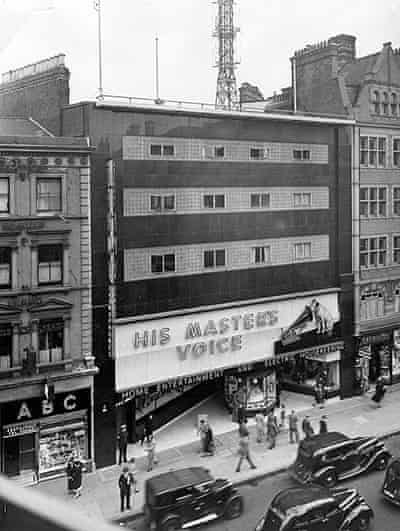
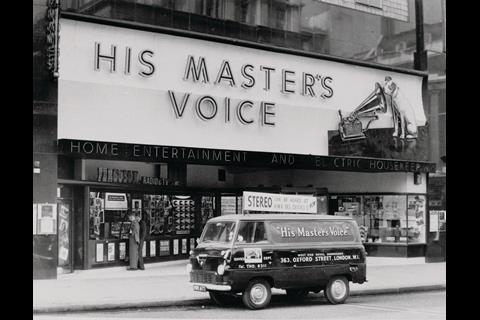
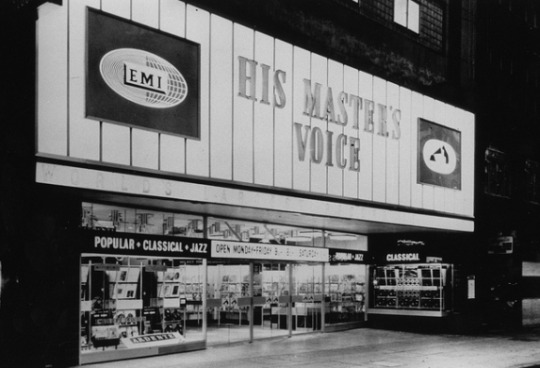

With the recent news that His Masters Voice or HMV is to return to its flagship store at 363 Oxford Street London, I thought we would celebrate it here.
The original shop was opened as far back as 1921 by the famous Sir Edward Elgar, but the original shop unfortunately burnt down in 1937, only to be rebuilt and re-opened two years later on the 8th May 1939. This time it was opened by Sir Thomas Beecham, the famous conductor. The shop ultimately staying open until 2019.
Apparently the shop played a part in the Beatles story. HMV, which was by this time part of EMI, had a small recording studio that members of the public could record songs for themselves. In February 1962 Brian Epstein was in London doing the rounds of the London record companies, trying to get a record deal for the boys. He stopped off at HMV Oxford Street to get some blank acetate discs. He mentioned the band to the disc-cutter Jim Foy who then mentioned the group to publisher Sid Colman who in turn mentioned them to George Martin at E.M.I.’s studios in Abbey Road. Martin gave The Beatles a recording test some months later and the rest is history. Whether this story is true I don't know, but it is interesting.
36 notes
·
View notes
Text
“To make her smile, on another occasion I told the Queen about our family dogs: the sophisticated French poodle we called ‘Phydeaux’ and the ageing mongrel who thought his name was ‘Down Boy’. She did smile (in fact, she laughed) and then told me that Prince Philip had a dog called ‘Sargent’ and asked me to guess what some of his other dogs were called. ‘Major?’ I suggested, ‘Corporal?’ ‘No,’ she explained, ‘Beecham, Boult. They’re not named after army ranks, they’re named after musical conductors — Sir Malcolm Sargent, Sir Thomas Beecham, Sir Adrian Boult.’”
Elizabeth: An Intimate Portrait by Gyles Brandreth
82 notes
·
View notes
Photo
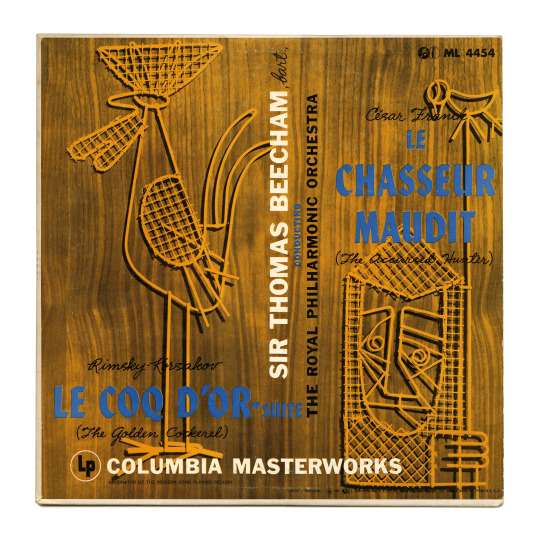
Rimsky-Korsakov: Le Coq D'Or Suite (The Golden Cockerel)
César Franck: Le Chasseur Maudit (The Accursed Hunter)
Sir Thomas Beecham Conducting The Royal Philharmonic
Columbia Masterworks/USA (1965)
7 notes
·
View notes
Text

"A Piece of the Action" (1977) is a comedy film directed by Sidney Poitier and stars Poitier and Bill Cosby. It is the third installment of the unofficial Uptown Trilogy, including "Uptown Saturday Night" (1974) and "Let's Do It Again" (1975). Charles Blackwell and Timothy March wrote the film, featuring Denise Nicholas, Hope Clarke, James Earl Jones, Tracy Reed, and Titos Vandis. Additional cast members are several young actors and actresses who are part of the community youth center in the film. Many were familiar faces in T.V. during the 70s, including Ernest Thomas, Bryan O'Dell, Eric Laneuville, Tamu Blackwell, and Sheryl Lee Ralph. Curtis Mayfield produced the soundtrack, and Mavis Staples was the vocals on the album.
Sidney Poitier applied some elements from "To Sir, with Love" in "A Piece of the Action." While the film isn't school-themed, the teenagers are of high school age, and there were significant teachable moments from Poitier. He used the 'common courtesy' exercise in "To Sir, with Love," "A Piece of the Action," and "To Sir, with Love II." Youth community centers are meaningful aspects for inner-city children. They allow children to learn outside of the school environments, and "A Piece of the Action" shows the importance of teaching students about the real world.
Overall, "A Piece of the Action" is a fun movie. The cast is legendary, and the messages still hold today.
Director: Sidney Poitier
Writers: Charles Blackwell, Timothy March
Starring Sidney Poitier, Bill Cosby, James Earl Jones, Denise Nicholas, Hope Clarke, Tracy Reed, Ja'net DuBois, Frances Foster, Ernest Thomas, Eric Laneuville, Sheryl Lee Ralph, Titos Vandis, Jason Evers, Marc Lawrence, Edward Love, Bryan O'Dell, Dianne Oyama Dixon, Larry Beecham, Karole Selmon, Tamu Blackwell, Gammy Burdett, Wonderful Smith
Storyline
Dave Anderson (Bill Cosby) and Manny Durrell (Sidney Portier) are two high-class sneak thieves who have never been caught. Joshua Burke (James Earl Jones) is a retired detective with enough evidence to put them behind bars. Instead, he offers to maintain his silence if the crooks will go straight and do work at a youth center for delinquents. At first, the thieves are reluctant (and so are the kids). As time passes, they gain the kids' trust and admiration and enjoy the job. All goes well until someone out of the past tells them they must do one last heist.
Available on DVD and streaming services
3 notes
·
View notes
Photo
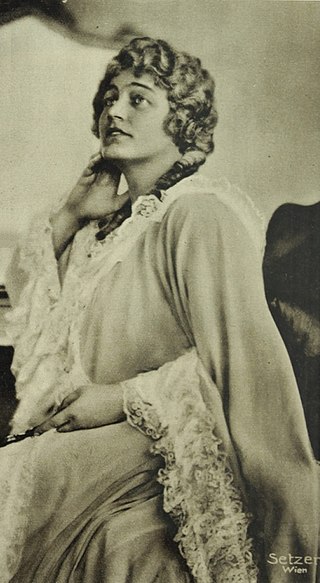
Viorica Ursuleac (26 March 1894 – 22 October 1985) was a Romanian operatic soprano. Viorica Ursuleac was born the daughter of a Greek Orthodox archdeacon, in Chernivtsi, which is now in Ukraine. Following training in Vienna, she made her operatic debut in Zagreb (Agram), as Charlotte in Massenet's Werther, in 1922. The soprano then appeared at the Vienna Volksoper (1924–26), Frankfurt Opera (1926–30), Vienna State Opera (1930–35), Berlin State Opera (1935–37), and Bavarian State Opera (1937–44). She married the Austrian conductor Clemens Krauss in Frankfurt during her time there.
She was Richard Strauss's favorite soprano, and he called her die treueste aller Treuen ("the most faithful of all the faithful"). She sang in the world premieres of four of his operas: Arabella (1933), Friedenstag (which was dedicated to Ursuleac and Krauss, 1938), Capriccio (1942), and the public dress-rehearsal of Die Liebe der Danae (1944).
She appeared at the Salzburg Festival (1930–34 and 1942–43) and in one season at Covent Garden (1934) where she sang in the first performances in England of Jaromír Weinberger's Schwanda the Bagpiper and Arabella (her favorite role). She also appeared as Desdemona in Verdi's Otello at the Royal Opera, with Lauritz Melchior in the name part, and Sir Thomas Beecham conducting.
Ursuleac sang at La Scala in Strauss's Die Frau ohne Schatten (as the Empress), and Elektra (as Chrysothemis), Mozart's Così fan tutte, and Wagner's Die Walküre (as Sieglinde). Her only American appearances were at the Teatro Colón in Buenos Aires, as Brangäne in Wagner's Tristan und Isolde, opposite Kirsten Flagstad, in 1948. Also in her repertory were the Countess Almaviva (The Marriage of Figaro), Donna Elvira (Don Giovanni), Leonore (Fidelio), Senta (Der fliegende Holländer, with Hans Hotter), Amelia Grimaldi (Simon Boccanegra), Amelia (Un ballo in maschera), Leonora (La forza del destino), Élisabeth de Valois (Don Carlos), Tosca, Minnie (La fanciulla del West), Suor Angelica (opposite Luise Willer), Turandot (opposite Erna Berger's Liù), Der Rosenkavalier, Ariadne auf Naxos (first as the Composer, then as Ariadne), Die ägyptische Helena, etc.
She was awarded the title of an Austrian Kammersängerin in 1934, a Prussian Kammersängerin in 1935. She gave her farewell in 1953 in Wiesbaden in Der Rosenkavalier. She was appointed professor at the Salzburg Mozarteum in 1964. The soprano recorded for Deutsche Grammophon in 1933, 1936, and 1943, with excerpts from Arabella, Le nozze di Figaro, Tosca, Turandot, Der Rosenkavalier, Il trovatore, and Capriccio, as well as two Lieder of Strauss. She was included in Volume III of EMI's The Record of Singing, in an excerpt from Arabella (1933).
Ursuleac's voice was not of great beauty, at least as recorded, but she was reckoned a great musician and actress. In the words of one colleague, the soprano Hildegard Ranczak, "Although she had a lovely, facile top, I was constantly amazed at the two hours' vocalizing she went through before each performance. Hers was, in my opinion, a marvelously constructed, not really natural voice which she used with uncanny intelligence". Ursuleac died at the age of ninety-one in the village of Ehrwald in Tyrol where she had resided since before the death in 1954 of her husband, Clemens Krauss.
#Viorica Ursuleac#women in music#women in history#women on stage#XIX century#XX century#people#portrait#photo#photography#Black and White
3 notes
·
View notes
Text
Classical Music 101: The Baroque Era
Welcome back to our series, Classical Music 101! Our goal with this series is to provide an approachable, non-intimidating introduction to classical music so you can start appreciating this timeless musical genre.
In our last article, we looked at the origins of classical music, beginning with the ancient Greeks and ending with the Renaissance. Western art/concert music, what we now popularly call classical music, began with simple monophonic chanting and developed more complexity with the introduction of polyphony as time progressed. A primary feature of early Western music was that it was voice-based — instruments were used sparingly. It wasn’t until the end of the Renaissance that Western music began shifting to become predominated by instruments.
In today’s article, we’ll take a musical tour of the Baroque era. Put on your powdered wig, and let’s get going.
The Baroque Era (1600-1750)
The Baroque era began roughly around 1600 with the composition of the first opera and lasted until the death of Johann Sebastian Bach in 1750.
The word “baroque” comes from Portuguese and means “irregular pearl.” It was originally used to unflatteringly describe the art, architecture, and music produced in the 17th and 18th centuries. Early critics thought the art, music, and architecture of the 1600s and early 1700s were too ornate and too flamboyant. But with time, “baroque” lost its reproachful meaning.
Baroque music is big, elaborate, intricate, and emotional while being governed by logic and order. The logic and order of Baroque music laid the foundation for musical notation and theory that we still use today.
It was also during the Baroque period that Western music began to be primarily instrumental. The harpsichord was a favorite instrument of Baroque composers. If you hear a classical piece with a harpsichord, chances are it’s from the Baroque era.
A funny aside about harpsichords: Conductor Sir Thomas Beecham, who wasn’t a fan of the instrument, once compared the sound of a harpsichord to “two skeletons copulating on a tin roof in a thunderstorm.” Lol. Sir Beecham has no chill.
What was behind the bigness, the ornateness, and the orderliness of Baroque music? Well, a few things:
First, the Baroque period saw the rise of monarchs with absolute power — think King Louis XIV of France. This centralization of power into a single individual led to a demand for architecture, art, and music that could enhance the prestige of a monarch and their royal courts. Composers were hired to write music that glorified the king and added to his larger-than-life image.
Second, during the Baroque era, you saw significant scientific advances. Newton discovered that laws and mathematics governed the universe. Musicians began to apply this scientific view to their music by writing pieces governed by logic, order, and math.
Third, in response to the Protestant Reformation, the Catholic Church began the Counter-Reformation that saw the embrace of music as a way to win souls. You start to see a shift away from plainchant music in churches towards elaborate, dramatic, highly emotional musical pieces designed to inspire religious awe in the listener.
Characteristics of Baroque Era Music
Counterpoint. Counterpoint is a technique of composing with interdependent yet independent melodic lines. A piece with counterpoint will have two lines of melody that can be played independently, but when put together, form a complex and cohesive piece of music rich in texture. The fugue is a musical form developed during the Baroque era that used counterpoint. Here’s an example of a fugue that showcases counterpoint beautifully. Note how complex and textured it sounds:
Basso continuo. Basso continuo is a continuous bass line that provides a rhythmic backbone for all the variety and complexity in a Baroque piece. Here’s an example of basso continuo (it’s Dutch; the cello and double bass provide the basso continuo):
Rhythmic patterns. Baroque music frequently features a driving rhythm that continues… http://dlvr.it/T7C09P
0 notes
Text

Zdenka Fassbender Bohemian soprano; b. Děčín, Dec. 12, 1879; d. Munich, March 14, 1954. She studied voice in Prague with Sophie Löwe-Destinn; made her operatic debut in Karlsruhe in 1899; from 1906 to 1919 she was one of the principal singers at the Munich Opera; she also sang at Covent Garden in London (1910, 1913). Felix Mottl married her on his deathbed to sanction their long- standing alliance. She was particularly regarded as an outstanding Wagner interpreter, as Venus in Tannhäuser, Ortrud in Lohengrin, Isolde in Tristan und Isolde], Brünnhilde in Der Ring des Nibelungen and Kundry in Parsifal. She sang other important roles as Santuzza in Cavalleria rusticana, Iphigenia in Gluck's Iphigenie auf Tauris, Alceste by Gluck, as Valentine in Les Huguenots by Meyerbeer, Dido in Les Troyens by Berlioz, Katharina in Der Widerspänstigen Zähmung by Hermann Goetz, Minneleide in Die Rose vom Liebesgarten by Pfitzner, Gundula in Der Bergsee by Julius Bittner and Leonore in Beethoven's Fidelio.When Richard Strauss wanted to perform his opera Elektra in Munich in 1909, Faßbender took over the title role at his request. She also appeared in the Munich premieres of the operas Tiefland by Eugen d'Albert (1908, as Martha), Tosca (1909, title role), Der Rosenkavalier (1911, as Marschallin), Der arme Heinrich by Hans Pfitzner (1913, as Hilde) and Mona Lisa by Max von Schillings (1917, title role).Guest appearances took her to the Wiener Hofoper (1904), to the Staatsoper Unter den Linden (1909) and often to Stuttgart, to the court theatres of Wiesbaden and Mannheim and to the opera house of Cologne. She also took part in the Wagner-Mozart festival from 1907 to 1910. In 1910 and 1913 she sang Elektra and Isolde under the conduct of Sir Thomas Beecham in London and from 1912 to 1914 she sang in the performances of the Ring cycle at the Théâtre de la Monnaie in Brussels. In 1924, she announced her retirement from the stage. In 1928, she appeared again at the Munich State Opera as Elektra. She was a member of the Staatsoper until 1931.
#classical music#opera#music history#bel canto#composer#aria#classical composer#classical studies#chest voice#maestro#Zdenka Faßbender#Zdenka Fassbender#Covent Garden#Royal Opera House#classical musician#classical musicians#classical history#history of music#historian of music#opera history#musicians#musician#diva#prima donna
4 notes
·
View notes
Text
Nikolai Rimsky Korsakov Suite The Golden Cockerel (1951)

Publication date 1951
Sir Thomas Beecham
The Royal Philharmonic Orchestra
Nikolai Rimsky-Korsakov, a prominent figure in the world of classical music, is renowned for his contributions to Russian musical literature. Among his many works, the suite "The Golden Cockerel" stands out as a testament to his musical genius and innovative spirit.
"The Golden Cockerel" is an opera in three acts, with a short prologue and even shorter epilogue. The suite derived from this opera is a condensed version that encapsulates the essence of the story and the musical themes. It was Rimsky-Korsakov's last opera, completed in 1907, a year before his death.
The story of "The Golden Cockerel" is based on a poem by Alexander Pushkin, with a libretto by Vladimir Belsky. It tells the tale of a hapless Tsar who, in exchange for a golden cockerel that can predict threats to his kingdom, promises his future queen to a mysterious astrologer. The narrative is filled with political satire, fantasy, and a tragic ending, all of which are reflected in the music.
The suite is characterized by Rimsky-Korsakov's signature style - a rich orchestration that paints vivid pictures and evokes strong emotions. The music is filled with beautiful melodies, dramatic contrasts, and intricate harmonies. It showcases Rimsky-Korsakov's mastery of orchestration and his ability to create musical narratives.
The suite begins with a fanfare-like theme representing the golden cockerel, followed by a series of character themes and dramatic interludes. The music captures the personalities of the characters, the tension of the plot, and the exoticism of the setting. The suite concludes with a mournful epilogue, reflecting the tragic end of the story.
"The Golden Cockerel" suite is a brilliant example of program music - music that tells a story or describes a scene. It is a testament to Rimsky-Korsakov's ability to translate a narrative into music, creating a sonic landscape that transports the listener into the world of the story.
In conclusion, "The Golden Cockerel" suite by Nikolai Rimsky-Korsakov is a musical masterpiece that combines storytelling, character portrayal, and emotional expression. It is a testament to Rimsky-Korsakov's genius and a significant contribution to the world of classical music.
#NikolaiRimskyKorsakov#TheGoldenCockerel#ClassicalMusic#MusicalComposition#RussianComposers#OperaSuite#OrchestralMusic#MusicAnalysis#MusicHistory#RomanticEraMusic
0 notes
Text
Quotes about travelling
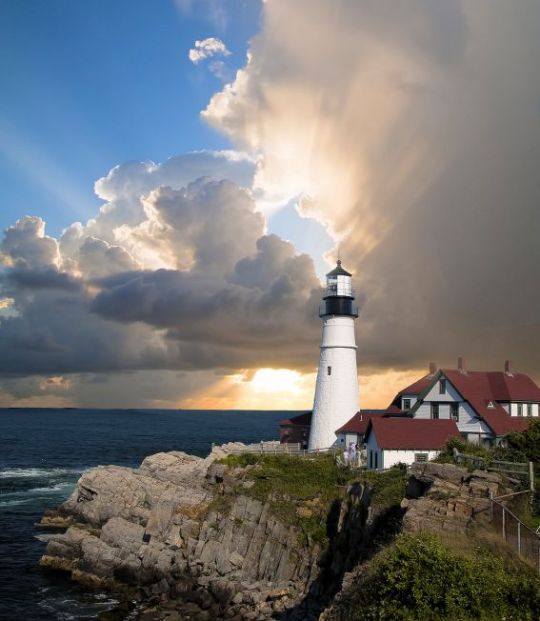
Quotes about travelling
Quotes about travelling, aphorisms, ideas, opinions and quotations about travels, travellers, holidays, tourisms and amazing places to visit around the world.
The American arrives in Paris with a few French phrases he has culled from a conversational guide or picked up from a friend who owns a beret.
Fred A. Allen
Space travel! Come on, I don't even want to go to Rimini.
Carl William Brown
We are all pilgrims who seek Italy.
Johann Wolfgang von Goethe
Memories are nothing more than a journey through time, almost always melancholic, nostalgic and painful.
Carl William Brown
My favorite thing is to go where I have never gone.
Diane Arbus
The more I want to get something done, the less I call it work.
Richard Bach
I am leaving the town to the invaders: increasingly numerous, mediocre, dirty, badly behaved, shameless tourists.
Brigitte Bardot
I have just been all round the world and have formed a very poor opinion of it.
Sir Thomas Beecham
Should we have stayed at home and thought of here? Where should we be today? Is it right to be watching strangers in a play in this strangest of theatres?
Elizabeth Bishop
The poor live their adventures, their journeys, their dreams thanks to cinema, theatre, social media, television and literature; the rich thanks to their money.
Carl William Brown
What childishness is it that while there's breath of life in our bodies, we are determined to rush to see the sun the other way around?
Elizabeth Bishop
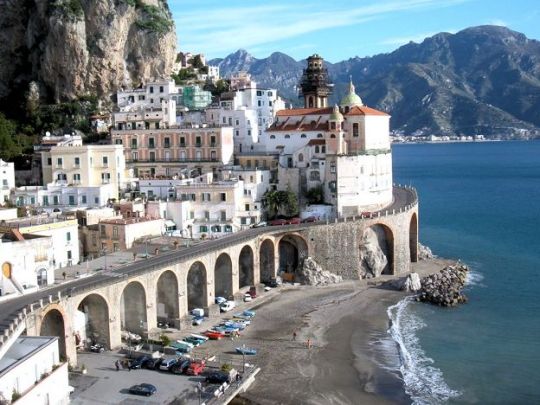
Quotes on travels Italy
Life is nothing more than a journey through the valleys of the absurd, through the seas of stupidity, when we reach the port of madness there is no one waiting for us, we only then realize that we have traveled in vain.
Carl William Brown
There is no looking at a building here after seeing Italy.
Fanny Burney
Travel and society polish one, but a rolling stone gathers no moss, and a little moss is a good thing on a man.
John Burroughs
I don't like traveling very much, also because having to go to hell often isn't a very pleasant thing.
Carl William Brown
Travelers are like poets. They are mostly an angry race.
Sir Richard Burton
I am so convinced of the advantages of looking at mankind instead of reading about them, and of the bitter effects of staying at home with all the narrow prejudices of an Islander, that I think there should be a law amongst us to set our young men abroad for a term among the few allies our wars have left us.
Lord Byron
To understand what morality is, I recommend you read Beyond Good and Evil and then set off towards the boundless confines of stupidity. Have a good trip.
Carl William Brown
I swims in the Tagus all across at once, and I rides on an ass or a mule, and swears Portuguese, and have got a diarrhea and bites from the mosquitoes. But what of that? Comfort must not be expected by folks that go a pleasuring.
Lord Byron
The idea that seeing life means going from place to place and doing a great variety of obvious things is an illusion natural to dull minds.
Charles Horton Cooley
Many times politicians' trips abroad are nothing more than excellent opportunities to do their business with our money.
Carl William Brown
Traveling, you realize that differences are lost: each city takes to resembling all cities, places exchange their form, order, distances, a shapeless dust cloud invades the continents.
Italo Calvino
The traveler sees what he sees, the tourist see what he has come to see.
Gilbert K. Chesterton
The travel writer seeks the world we have lost - the lost valleys of the imagination.
Alexander Cockburn
By travelling at the speed of light we would stop time and become eternal. For us it is impossible, for stupidity it is not.
Carl William Brown
The routines of tourism are even more monotonous than those of daily life.
Mason Cooley

Aphorisms on travelling
When one realizes that his life is worthless he either commits suicide or travels.
Edward Dahlberg
The personal appropriation of cliches is a condition for the spread of cultural tourism.
Serge Daney
Tourism, human circulation considered as consumption, is fundamentally nothing more than the leisure of going to see what has become banal.
Guy Debord
Like all great travelers, I have seen more than I remember and remember more than I have seen.
Benjamin Disraeli
Death is nothing more than a journey without suitcases and without return; perhaps for this reason, it will be less boring than the others.
Carl William Brown
Journeys, like artists, are born and not made. A thousand differing circumstances contribute to them, few of them willed or determined by the will - whatever we may think.
Lawrence Durrell
Sailing round the world in a dirty gondola oh, to be back in the land of Coca-Cola!
Bob Dylan
Our instructed vagrancy, which has hardly time to linger by the hedgerows, but runs away early to the tropics, and is at home with palms and banyans, is nourished on books of travel, and stretches the theatre of its imagination to the Zambesi.
George Eliot
No man should travel until he has learned the language of the country he visits. Otherwise he voluntarily makes himself a great baby-so helpless and so ridiculous.
Ralph Waldo Emerson
Travel is a fool's paradise.
Ralph Waldo Emerson
Traveling is a fool's paradise. Our first journeys discover to us the indifference of places.
Ralph Waldo Emerson
The average tourist wants to go to places where there are no tourists.
Sam Ewing
It would be nice to travel if you knew where you were going and where you would live at the end or do we ever know, do we ever live where we live, we're always in other places, lost, like sheep.
Janet Frame
Death is nothing other than the final destination of our stupid earthly journey.
Carl William Brown
The fool wanders, a wise man travels.
Thomas Fuller
Travel makes a wise man better, and a fool worse.
Thomas Fuller
Traveling is like gambling: it is always connected with winning and losing, and generally where it is least expected we receive, more or less than what we hoped for.
Johann Wolfgang Von Goethe
A wise traveler never depreciates their own country.
Carlo Goldoni
If time travel existed, we would be inundated with tourists from the future.
Carl William Brown
A man who leaves home to mend himself and others is a philosopher; but he who goes from country to country, guided by the blind impulse of curiosity, is a vagabond.
Oliver Goldsmith
I would like to spend my whole life traveling, if I could borrow another life to spend at home.
William Hazlitt
Writing and travel broaden your ass if not your mind and I like to write standing up.
Ernest Hemingway
They change their climate, not their soul, who rush across the sea.
Horace
To travel is to discover that everyone is wrong about other countries.
Aldous Huxley
Your true traveler finds boredom rather agreeable than painful. It is the symbol of his liberty -- his excessive freedom. He accepts his boredom, when it comes, not merely philosophically, but almost with pleasure.
Aldous Huxley
Being on tour sends me crazy, I drink too much and out comes the John Mcenroe in me.
Chrissie Hynde
Though there are some disagreeable things in Venice there is nothing so disagreeable as the visitors.
Henry James
Traveling makes a man wiser, but less happy.
Thomas Jefferson
As the Spanish proverb says, ''He who would bring home the wealth of the Indies, must carry the wealth of the Indies with him.'' So it is in traveling; a man must carry knowledge with him, if he would bring home knowledge.
Samuel Johnson
In traveling, a man must carry knowledge with him, if he would bring home knowledge.
Samuel Johnson
He who does not travel slowly dies; However, those who travel often die more quickly!
Carl William Brown
The use of traveling is to regulate imagination by reality, and instead of thinking how things may be, to see them as they are.
Samuel Johnson
Worth seeing? Yes; but not worth going to see.
Samuel Johnson
Much have I traveled in the realms of gold, and many goodly states and kingdoms seen.
John Keats
People commonly travel the world over to see rivers and mountains, new stars, garish birds, freak fish, grotesque breeds of human; they fall into an animal stupor that gapes at existence and they think they have seen something.
Soren Kierkegaard
If you look like your passport picture you're too ill to travel.
Will Kommen
The map is not the territory.
Alfred Korzybski
Thanks to the interstate highway system, it is now possible to travel across the country from coast to coast without seeing anything.
Charles Kuralt
Without stirring abroad, one can know the whole world; Without looking out of the window one can see the way of heaven. The further one goes the less one knows.
Lao-Tzu
After the end of humanity, some survivors travel the universe on a spaceship in search of a new planet on which to continue the development of stupidity. For eternity.
Carl William Brown
Comes over one an absolute necessity to move. And what is more, to move in some particular direction. A double necessity then: to get on the move, and to know whither.
D. H. Lawrence
We travelers are in very hard circumstances. If we say nothing but what has been said before us, we are dull and have observed nothing. If we tell anything new, we are laughed at as fabulous and romantic.
Lady Mary Wortley Montagu
The tourist who moves about to see and hear and open himself to all the influences of the places which condense centuries of human greatness is only a man in search of excellence.
Max Lerner
Does this boat go to Europe, France?
Anita Loos
Spirit of place! It is for this we travel, to surprise its subtlety; and where it is a strong and dominant angel, that place, seen once, abides entire in the memory with all its own accidents, its habits, its breath, its name.
Alice Meynell
If we are always arriving and departing, it is also true that we are eternally anchored. One's destination is never a place, but rather a new way of looking at things.
Henry Miller
Our organism is a perfect machine that travels for a certain period on the highway of the absurd, so nothing is more noble and heroic than that someone doesn't really like making this stupid journey and therefore tries to damage the vehicle.
Carl William Brown
A man should ever be ready booted to take his journey.
Michel Eyquem De Montaigne
Traveling is not just seeing the new; it is also leaving behind. Not just opening doors; also closing them behind you, never to return. But the place you have left forever is always there for you to see whenever you shut your eyes.
Jan Myrdal
Life, as the most ancient of all metaphors insists, is a journey; and the travel book, in its deceptive simulation of the journey's fits and starts, rehearses life's own fragmentation. More even than the novel, it embraces the contingency of things.
Jonathan Raban
As for pictures and museums, that don't trouble me. The worst of going abroad is that you've always got to look at things of that sort. To have to do it at home would be beyond a joke.
Margaret Oliphant
If my ship sails from sight, it doesn't mean my journey ends, it simply means the river bends.
John Enoch Powell
He who has not traveled widely thinks that his mother is the best cook.
African Proverb
In the middle ages people were tourists because of their religion, whereas now they are tourists because tourism is their religion.
Robert Runcie
Travel is the most private of pleasures. There is no greater bore than the travel bore. We do not in the least want to hear what he has seen in Hong Kong.
Vita Sackville-West
Its really hard to be roommates with people if your suitcases are much better than theirs.
J. D. Salinger
Life on board a pleasure steamer violates every moral and physical condition of healthy life except fresh air. It is a guzzling, lounging, gambling, dog's life. The only alternative to excitement is irritability.
George Bernard Shaw
Using a camera appeases the anxiety which the work-driven feel about not working when they are on vacation and supposed to be having fun. They have something to do that is like a friendly imitation of work: they can take pictures.
Susan Sontag
Journeys end in lovers meeting.
William Shakespeare
An involuntary return to the point of departure is, without doubt, the most disturbing of all journeys.
Iain Sinclair
A journey is like marriage. The certain way to be wrong is to think you control it.
John Steinbeck
He travels best that knows when to return. Middleton for my part, I travel not to go anywhere, but to go. I travel for travel's sake. The great affair is to move.
Robert Louis Stevenson
It is better to travel hopefully than to arrive.
Robert Louis Stevenson
To travel hopefully is a better thing than to arrive, and the true success is to labor.
Robert Louis Stevenson
Travel is ninety percent anticipation and ten percent recollection.
Edward Streeter
A solitary traveler can sleep from state to state, from day to night, from day to day, in the long womb of its controlled interior. It is the cradle that never stops rocking after the lullaby is over. It is the biggest sleeping tablet in the world, and no one need ever swallow the pill, for it swallows them.
Lisa St. Aubin De Teran
Travelling is like flirting with life. It's like saying, "I would stay and love you, but I have to go; this is my station."
Lisa St. Aubin De Teran
I have been a stranger in a strange land.
The Holy Bible
Extensive traveling induces a feeling of encapsulation, and travel, so broadening at first, contracts the mind.
Paul Theroux
Travel is fatal to prejudice, bigotry, and narrow-mindedness, and many of our people need it sorely on these accounts.
Mark Twain
Travel is glamorous only in retrospect.
Paul Theroux
I travel not to go anywhere, but to go. I travel for travel's sake. The great affair is to move.
Robert Louis Stevenson
Inter-railers are the ambulatory equivalent of Macdonald's, walking testimony to the erosion of French culture.
Alice Thompson
Only the traveling is good which reveals to me the value of home and enables me to enjoy it better.
Henry David Thoreau
Man is flying too fast for a world that is round. Soon he will catch up with himself in a great rear end collision.
James Thurber
You perceive I generalize with intrepidity from single instances. It is the tourist's custom.
Mark Twain
Every year it takes less time to fly across the Atlantic and more time to drive to the office.
Author Unknown
If it's tourist season, why can't we kill them?
Author Unknown
Old men and far travelers may lie with authority.
Author Unknown
The alternative to a vacation is to stay home and tip every third person you see.
Author Unknown
The bigger the summer vacation the harder the fall.
Author Unknown
Those that say you can't take it with you never saw a car packed for a vacation trip.
Author Unknown
I never travel without my diary. One should always have something sensational to read on the train.
Oscar Wilde
I was disappointed in Niagara - most people must be disappointed in Niagara. Every American bride is taken there, and the sight of the stupendous waterfall must be one of the earliest, if not the keenest, disappointments in American married life.
Oscar Wilde
I think that wherever your journey takes you, there are new gods waiting there, with divine patience -- and laughter.
Susan M. Watkins
O public road, I say back I am not afraid to leave you, yet I love you, you express me better than I can express myself.
Walt Whitman
I traveled among unknown men, in lands beyond the sea; nor England! did I know till then what love I bore to thee.
William Wordsworth
Too often travel, instead of broadening the mind, merely lengthens the conversation.
Elizabeth Drew
The World is a book, and those who do not travel read only a page.
St. Augustine
When preparing to travel, lay out all your clothes and all your money. Then take half the clothes and twice the money.
Susan Heller
I think that travel comes from some deep urge to see the world, like the urge that brings up a worm in an Irish bog to see the moon when it is full.
Lord Dunsany
A good traveler has no fixed plans, and is not intent on arriving.
Lao Tzu
Wandering re-establishes the original harmony which once existed between man and the universe.
Anatole France
No one realizes how beautiful it is to travel until he comes home and rests his head on his old, familiar pillow.
Lin Yutang
Travel and change of place impart new vigor to the mind.
Seneca
The traveler was active; he went strenuously in search of people, of adventure, of experience. The tourist is passive; he expects interesting things to happen to him. He goes "sight-seeing."
Daniel J. Boorstin
It is not down in any map; true places never are.
Herman Melville
What you've done becomes the judge of what you're going to do - especially in other people's minds. When you're traveling, you are what you are right there and then. People don't have your past to hold against you. No yesterdays on the road.
William Least Heat Moon, Blue Highways
The whole object of travel is not to set foot on foreign land; it is at last to set foot on one's own country as a foreign land.
G.K. Chesterton
To get away from one's working environment is, in a sense, to get away from one's self; and this is often the chief advantage of travel and change.
Charles Horton Cooley
And that's the wonderful thing about family travel: it provides you with experiences that will remain locked forever in the scar tissue of your mind.
Dave Barry
Travelers never think that they are the foreigners.
Read the full article
#adventures#America#Australia#Byron#China#cruise#culture#differences#holidays#Italy#journeys#Lawrence#London#memories#mountains#Paris#Rome#sea#seaside#sparetime#Tourism#tourists#travel#travellers#travelling#trip#world
1 note
·
View note
Text
Bloglet
Thursday, February 1, 2024
At the Union hall a rehearsal. Wally leading his band. Great band. A rehearsal band playing Wally's meticulous arrangements.
Nice to see a few people.
I am recalling that Wally's son, Miles, on a visit, came to see Wally rehearse his band. Miles's field is finance. The music, we can be sure, meant nothing to him. Perhaps he thinks of Wally's arranging as a hobby. But Wally worked awfully hard (as a copyist; he has a beautiful "hand") to send Miles to the best schools. (It is for the kids that we do this stuff.) Miles's being present, though it was really of good of him to come (even experienced musicians would find this music complex), would be like my attending a physics lecture.
Note: Wally was a trumpet player. Hence, naming his son Miles. As drummers tended to name their sons Max. Funny.
Wally will be ninety in March.
A number of overcast days. Promise of sunlight tomorrow.
Friday, February 2, 2024
A bit of sunlight. Errands.
Trump says he is on the outlook for more lawyers. Is dumping Ms. Habba. She did such a bad job.
I would prefer the Super Bowl to be on this weekend rather than having to wait for an added week of hype.
Afternoon: My weekly Zoom call with Ray and Kenny D. Nice to talk about music. Chewing the fat.
Saturday, February 3, 2024
Listening to the Spectrum music channel. "Fantasia on a Theme by Thomas Tallis" by Ralph Vaughn Williams. When I was in college we studied this piece. I'm quite sure its subtleties were lost on me. In a later years I found myself growing fond of Vaughn Williams's music. Apparently Vaughn Williams had a tiff with Sir Thomas Beecham. I don't know the details but Beecham kept promoting fellow Britisher Delius (perhaps rooting for the underdog) and making snide remarks about Vaughn Williams. For example: "It's tragic that Vaughn Williams didn't put themes by Thomas Tallis in all of his pieces."
The sun pokes through. Errands.
to be continued
0 notes
Text
Current project: listening to every recording of Die Zauberflöte that I have access to, in chronological order.
So far I've listened to Sir Thomas Beecham's 1937 studio recording, which I had heard before, and the live recordings of Arturo Toscanini (1937), Karl Böhm (1941) and Bruno Walter (1942), none of which I had heard until now.
They've all had their strengths and weaknesses so far, but one thing has been consistent: I've liked every Papageno. I already knew that Gerhard Hüsch was excellent on the Beecham recording, but Willi Domgraf-Fassbaender, Alfred Poell, and John Brownlee have all won me over too. :)
1 note
·
View note
